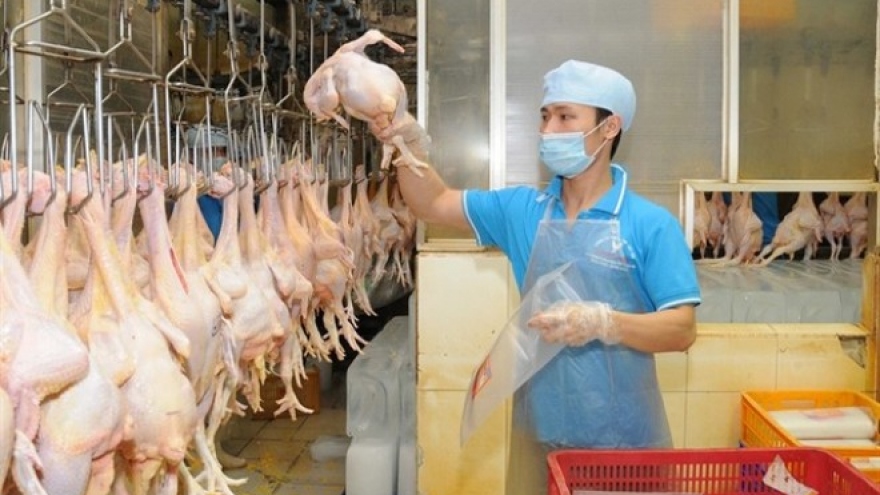Ethnic minority, experts in Vietnam work to save indigenous fowl
Ethnic minority farmers and experts in central Vietnam are working to conserve and breed a once-abundant species of indigenous fowl.
 |
Re chickens, now teetering on the brink of extinction, have a distinctively undersized torso and small legs and are known for slumbering on tree limbs. By the time they reach maturity, approximately six months to one year, the birds weigh a mere 1.2kg.
The species of chicken was recently recognized as one of Vietnam’s prized indigenous varieties by the Animal Husbandry Institute under the Ministry of Agriculture and Rural Development.
Native people consider the firm, pleasant tasting meat a delicacy, often reserving it for ancestral offerings or noted visitors.
Pham Van On, a village elder, says that during his youth, Re bantams would often roam local hamlets in large flocks.
Over the course of time, however, breeders found that the bird’s small size made it economically inefficient and began crossbreeding Re with larger species to produce more lucrative hybrids. As a result, pure-bred Re bantams have become quite rare and are nearing extinction.
On referred a Tuoi Tre (Youth) newspaper reporter to Pham Van Rach, the owner of a pure-bred Re chicken farm at the foot of Cao Muon Mountain in Ba Vinh Commune.
Rach had been startled when village patriarchs and elders voiced concerns that Re chickens might vanish for good, and in 2000 he began scouring his commune and neighboring localities for Re chickens he could breed, though his search proved unsuccessful.
He was eventually introduced to a Re chicken breeder who sold him one parenting bird and gave him another for free.
That was the beginning of Rach’s painstaking breeding project.
Through trial and error, the H’Re ethnic minority man taught himself how to care for his fowl.
To grow his flock, avoid inbreeding, and minimize the risk of undesired inherited traits, the ‘Re Chicken King’ searches extensively for more parenting thoroughbreds, often winding up empty-handed.
“I can easily tell purebreds from hybrids just by looking at their size, plumage, legs, and eyes. Purebreds are considerably smaller than hybrids,” Rach said.
He prides himself on his enormous flock, with hundreds of birds gathering at his whistles and pecking gently at his feet.
In late 2016, he purchased incubators and supplied 300 of his breeding chicks to local households as part of a poverty elimination project.
Now Rach is no longer a loner on his quest for purebred Re chicks.
Researchers from the Animal Husbandry Institute and the provincial Department of Science and Technology have recently made concerted efforts to preserve the Re chicken strain and are tapping into the prized gene pool by selecting premium individuals from Rach’s flock and scouring for more thoroughbred fledglings elsewhere.
“Purebreds are very limited in numbers and locals are reluctant to sell their chicks because they prefer to keep the fowl for ancestral offerings,” Le Thi Quynh Trang, an engineer from the provincial science and technology department’s Center of Information and Scientific, Technological Application, said.
“They only agree to sell their chicks after learning of their immense value. We sometimes have to seek help from village patriarchs to persuade locals,” she added.
After nearly a year of hard work, the engineers’ flock is finally thriving and about 60 percent of their first batch of eggs have hatched well.
“Our staff care for the fledglings as if they were their own babies. We will strive to conserve the gene pool and return the fledglings to the care of H’Re natives one day,” Bui Ngoc Truc, the center’s deputy director, noted.
“As more researchers and breeders become involved in the conservation and farming process, I’m convinced we will soon be able to revive the strain and that it will flourish,” Rach said optimistically.



